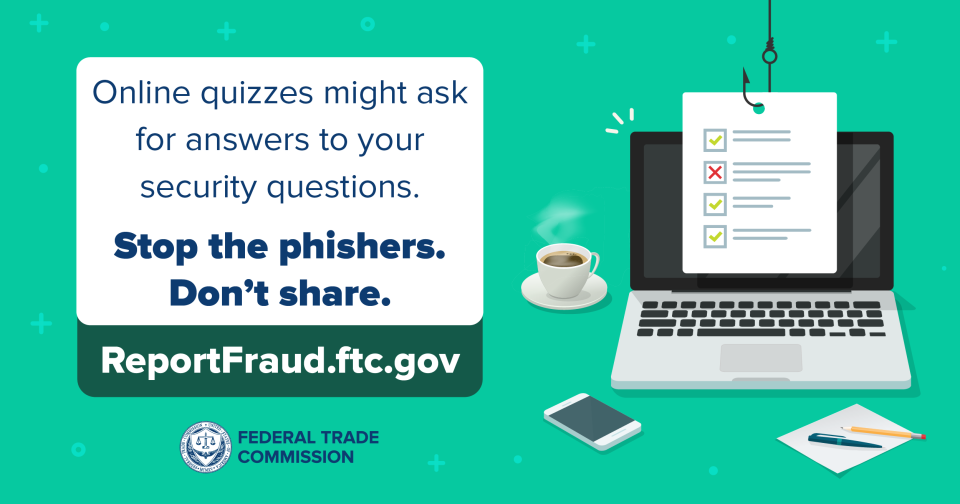Online quizzes are a fun way to pass the time and test your knowledge, but they can also be a way for scammers to steal your personal information. In recent years, online quiz scams have become more prevalent, posing a risk to anyone who takes the bait. Here are some things to look for to protect yourself from online quiz scams.
How online quiz scams work
Online quiz scams typically work by asking you to answer a series of questions about yourself, such as your name, address, phone number, and date of birth. These questions may seem harmless, but they can be used to gather the information that can be used to steal your identity. Once you have answered the questions, the scammer can use your information to steal your identity or commit fraud. These attacks, also known as phishing, attempt to trick you into surrendering personal and financial information.
How to spot online quiz scams
There are a few things you can look for to spot online quiz scams:
- The quiz may be from a website or social media post you do not recognize. If you are unfamiliar with the source, do not answer the quiz.
- The quiz may ask for personal details that are not necessary to complete the quiz. For example, a quiz about your favorite movie or TV show should not ask for sensitive data like your Social Security number or your Mother’s Maiden name.
- The quiz may promise you a prize or reward in exchange for your personal information. This is a common phishing technique used by scammers.
- The quiz may have grammatical errors or typos, or the formatting may look unprofessional. This is a sign that the quiz may be fake.
How to protect yourself from online quiz scams
These are a few things you can do to protect yourself from online quiz scams:
- Be careful about what information you share online. This includes websites, e-mail, and social media. Only share personal information with websites and companies that you trust.
- Don’t answer any questions you feel uncomfortable answering, such as one that asks for too much personal information. Scammers can use information that you share to target you.
- Use strong passwords and security questions for your online accounts. Do not use the same password for multiple accounts. You could also use a password manager to create and store strong passwords for your online accounts.
- Keep your anti-virus software up to date.
- Search for the quiz on Google, YouTube, or Bing. If the search leads back to the authentic company website, you will know it’s real.
What to Do If You Think You Have Been a Victim of an Online Quiz Scam
If you think you have been a victim of an online quiz scam, there are a few things you can do:
- Change your passwords for all your online accounts.
- Monitor your credit report for any unauthorized activity.
- File a report with the Federal Trade Commission (FTC) at ftc.gov/complaint.
- Contact Us and any other bank or credit card company you use to report the fraud.
Conclusion
Online quiz scams can be a significant problem, but there are steps you can take to protect yourself. Being aware of the risks and taking precautions can help keep your personal information safe. By following these simple rules, you can protect yourself and your personal information from scammers and have a fun experience with online quizzes.














